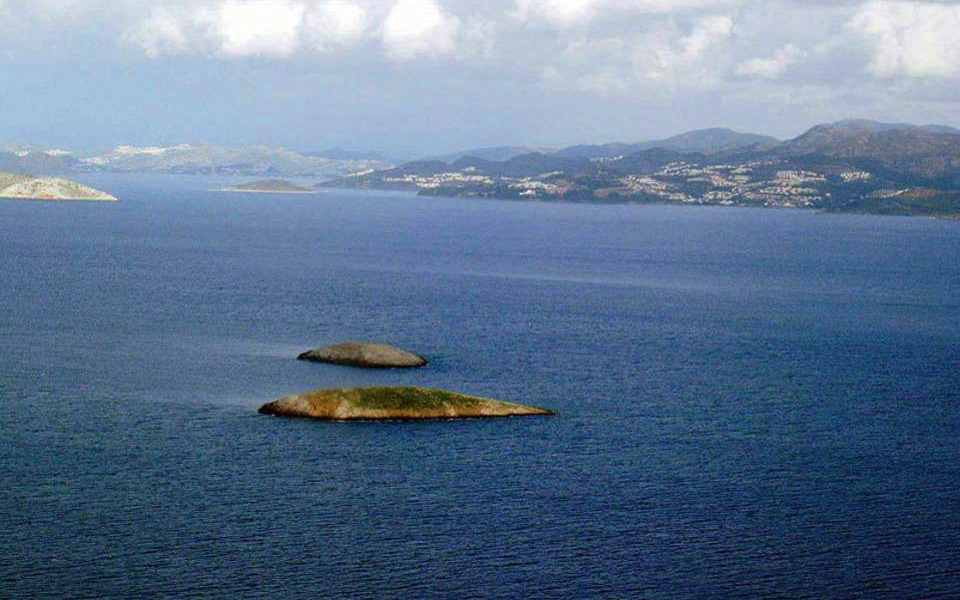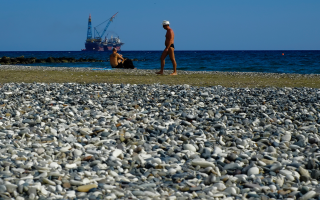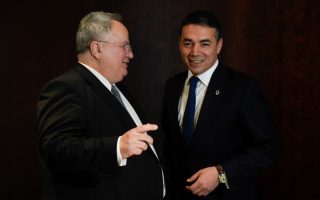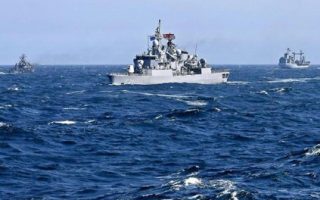Greece-Turkey, without an arbitrator

One aspect of the latest rift between Greece and Turkey which could prove decisive (if not this time, perhaps next time around) is the absence of a strong mediator with the political, economic and military weight to influence developments. In the existing conjuncture, only the United States can play this role.
The European Union does have capabilities and means of applying diplomatic pressure, but it lacks the impact of American power, particularly when it comes to an authoritarian leader like Turkish President Recep Tayyip Erdogan. The director of Zaman, Turkey’s biggest newspaper, told this writer a few months before the publication was shut down by authorities, that the Turkish strongman only acknowledges and respects two “powerful world leaders,” namely the American president of the time and Russia’s Vladimir Putin, each for different reasons – and no one else but them.
Any expressions of regret, recommendations or even condemnations from European officials including Commission President Jean-Claude Juncker, European Council President Donald Tusk or the bloc’s foreign policy chief Federica Mogherini are of course welcome – and anticipated – but will only achieve so much.
As past experience demonstrates, only the US has the power to stop Turkey; from Lyndon B. Johnson’s letter to then Turkish prime minister Ismet Inonu in 1964 which averted the invasion of Cyprus, to the intervention of US envoy Richard Holbrooke in 1996 which prevented military conflict over the Imia islets in the eastern Aegean.
However, what had for decades been considered a given in the diplomatic and military arena is no more. Washington appears to be shunning that responsibility. The statement by the US State Department on Tuesday which said that Greece and Turkey “have long-established diplomatic channels for addressing Aegean issues,” and encouraging all parties to take steps to “de-escalate” the situation, indicates that, at this crucial juncture for Athens, the emperor either has no clothes or is altogether absent from the stage.
Washington is vaguely asking for “de-escalation,” yet it does not appear keen to make a meaningful intervention. Maybe it is not in a position to do so. Whatever the real reason may be, the US stance is not helping to maintain stability and certainly does not signal a positive development for Athens.
Meanwhile, any Turkish officials (like Erdogan’s chief adviser Yigit Bulut, who earlier this week suggested that Athens is like “a fly picking a fight with a giant”) who believe that Greece’s air and naval forces are of negligible strength are making a big mistake. The military balance between Greece and Turkey may not be in the former’s favor, and this is a factor to be taken into account, but Turkey would be certain to pay a high price in case of military conflict – and this is something that the arrogant Turkish president must be aware of.
Of course no one wants to see the situation get out of control. Greece by no means wants an escalation of tension. This is something it is trying to avoid. Regrettably, a small minority of politicians occasionally lapse into over-the-top rhetoric or actions which are counterproductive. But they are isolated cases.
Virtually all of Greece’s political parties want good-neighborly relations. Unfortunately, the behavior of the government and the opposition in Turkey indicates that this is not the case across the Aegean. Greek-Turkish relations will continue to play out in a difficult framework. The fact that the US is absent and there is no arbitrator makes this game all the more dangerous.





